Stormy Daniels calls Trump indictment a vindication, but says she fears for her safety
From CNN's Jorge Engels
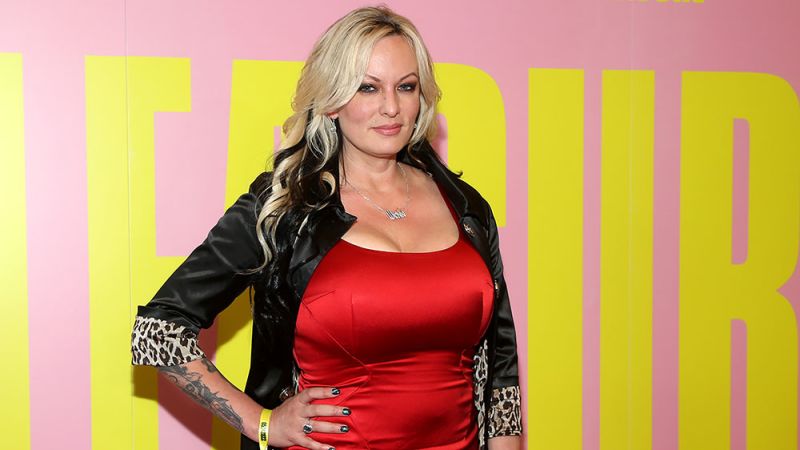 Stormy Daniels at the Linwood Dunn Theater on May 11, 2022, in Los Angeles, California. (Phillip Faraone/Getty Images/FILE)
Stormy Daniels at the Linwood Dunn Theater on May 11, 2022, in Los Angeles, California. (Phillip Faraone/Getty Images/FILE)The grand jury indictment of former US President Donald Trump was a "vindication," "monumental" and "epic," adult film star Stormy Daniels told the British newspaper, The Times.
Daniels also said she received a torrent of abuse within hours of the indictment and that for the first time, she is scared.
"It's especially scary because Trump himself is inciting violence and encouraging it," she added.
Daniels was supposed to appear on Britain's TalkTV for an exclusive interview with host Piers Morgan Friday afternoon. Piers Morgan wrote on his official Twitter account that Daniels had to “suddenly postpone” the interview minutes before it was scheduled to begin due to “security issues.”
Here's why Trump can still run for president — even though he's been indicted
Analysis by Zachary B. Wolf
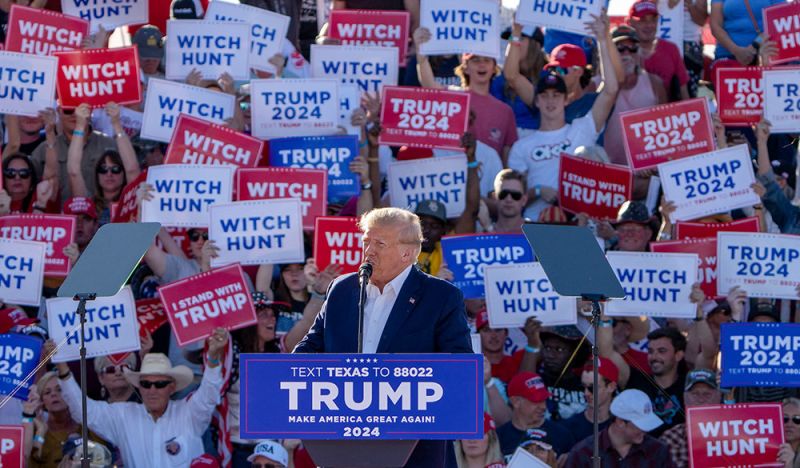 Trump speaks during a 2024 election campaign rally in Waco, Texas, on March 25. (Suzanne Cordeiro/AFP/Getty Images)
Trump speaks during a 2024 election campaign rally in Waco, Texas, on March 25. (Suzanne Cordeiro/AFP/Getty Images)Former President Donald Trump faces four different criminal investigations by three different levels of government – the Manhattan district attorney; the Fulton County, Georgia, district attorney; and the Department of Justice.
Even though he has been indicted by a Manhattan grand jury he can still run for president in 2024. Trump announced his candidacy in November.
“Nothing stops Trump from running while indicted, or even convicted,” Richard Hasen said, a law professor at the University of California, Los Angeles.
The Constitution requires only three things of candidates:
- A natural-born citizen.
- At least 35 years old.
- A resident of the US for at least 14 years.
As a political matter, it’s maybe more difficult for an indicted candidate, who could become a convicted criminal, to win votes. Trials don’t let candidates put their best foot forward, but it is not forbidden for them to run or be elected.
There are a few asterisks both in the Constitution and the 14th and 22nd Amendments, none of which currently apply to Trump in the cases thought to be closest to formal indictment.
- Term limits. The 22nd Amendment forbids anyone who has twice been president (meaning twice been elected or served part of someone else’s term and then won his or her own) from running again. That doesn’t apply to Trump since he lost the 2020 election.
- Impeachment. If a person is impeached by the House and convicted by the Senate of high crimes and misdemeanors, he or she is removed from office and disqualified from serving again. Trump, although twice impeached by the House during his presidency, was also twice acquitted by the Senate.
- Disqualification. The 14th Amendment includes a “disqualification clause,” written specifically with an eye toward former Confederate soldiers.
The indictment in New York City with regard to the hush-money payment to an adult film star has nothing to do with rebellion or insurrection. Nor do potential federal charges with regard to classified documents.
Potential charges in Fulton County, Georgia, with regard to 2020 election meddling or at the federal level with regard to the January 6, 2021, insurrection could perhaps be construed by some as a form of insurrection. But that is an open question that would have to work its way through the courts. The 2024 election is fast approaching.
A list of the other notable legal clouds that hang over Donald Trump in 2023
From CNN's Dan Berman
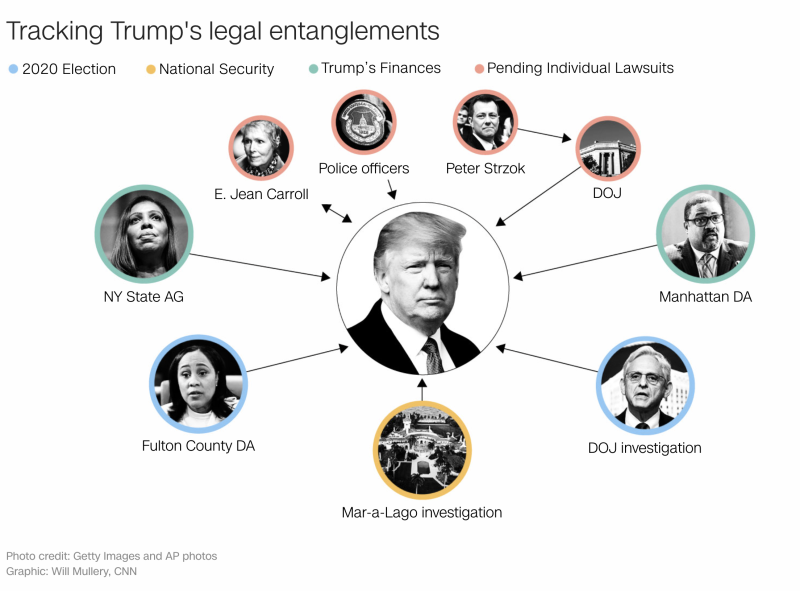
The New York hush money payment investigation is not the only probe former President Donald Trump is facing.
Here’s an updated list of additional notable investigations, lawsuits and controversies:
Mar-a-Lago documents: Did Trump mishandle classified material?
Special counsel Jack Smith is overseeing the Justice Department’s criminal investigations into the retention of national defense information at Trump’s resort and into parts of the January 6, 2021, insurrection.
The Justice Department investigation continues into whether documents from the Trump White House were illegally mishandled when they were taken to Mar-a-Lago in Florida after he left office. A federal grand jury has interviewed potential witnesses regarding how Trump handled the documents.
The National Archives, charged with collecting and sorting presidential material, has previously said that at least 15 boxes of White House records were recovered from Mar-a-Lago, including some classified records.
Any unauthorized retention or destruction of White House documents could violate a criminal law that prohibits the removal or destruction of official government records, legal experts told CNN.
2020 election and January 6: US Justice Department
Smith’s purview also includes the period after Trump’s 2020 election loss to Joe Biden and leading up to the insurrection at the US Capitol.
As part of its investigation, the special counsel’s office has sought testimony from a number of key White House insiders, including former Vice President Mike Pence, Trump’s daughter Ivanka Trump and son-in-law Jared Kushner.
Aspects of the Justice Department’s probe include the use of so-called fake electors from states that Trump falsely claimed he had won, such as Georgia and Arizona.
Trump has been fighting to keep former advisers from testifying about certain conversations, citing executive and attorney-client privileges to keep information confidential or slow down criminal investigators.
2020 election: Efforts to overturn Georgia results
Fulton County, Georgia, District Attorney Fani Willis oversaw a special grand jury investigating what Trump or his allies may have done in their efforts to overturn Biden’s victory in Georgia.
Willis, a Democrat, is considering bringing conspiracy and racketeering charges, CNN’s Don Lemon reported Monday.
The probe was launched in 2021 following Trump’s call that January with Georgia Secretary of State Brad Raffensperger, in which he pushed the Republican to “find” votes to overturn the election results.
The grand jury issued a report – which remains mostly under seal – that found there was no widespread voter fraud in the state and also suggested perjury charges be considered against some people who testified.
Overall, the grand jury recommended charges against more than a dozen people, the foreperson said in interviews last month.
Read about other investigations here.
Key things to know about the Manhattan DA leading the probe into Trump’s role in the hush money scheme
From CNN's Sydney Kashiwagi
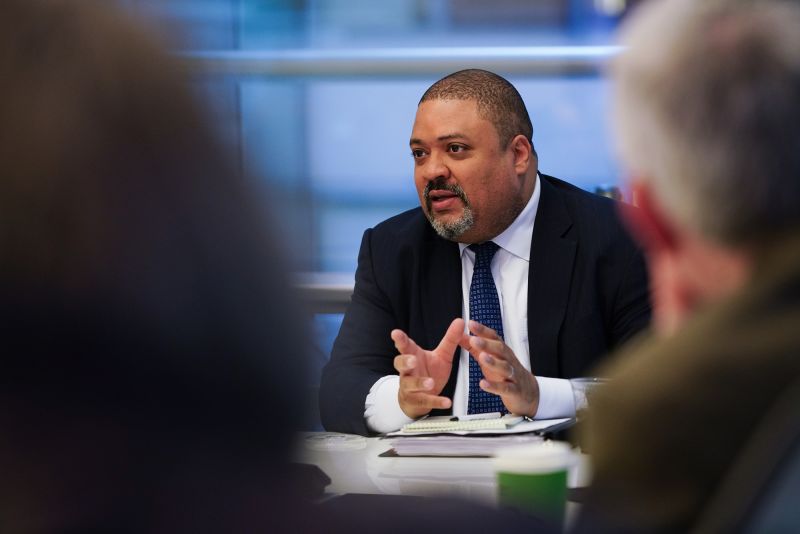 Manhattan district attorney Alvin Bragg speaks during an interview in New York on December 15, 2022. (Christopher Goodney/Bloomberg/Getty Images)
Manhattan district attorney Alvin Bragg speaks during an interview in New York on December 15, 2022. (Christopher Goodney/Bloomberg/Getty Images)Alvin Bragg, a former New York state and federal prosecutor, drew national attention when he made history as the Manhattan District Attorney’s Office first Black district attorney. Now, he is back in the spotlight after a grand jury voted to indict Donald Trump after a yearslong investigation into the former president’s alleged role in a hush money scheme.
Bragg has remained tight-lipped on the details of the Trump probe, which he inherited from his predecessor, Cy Vance, who began the investigation when Trump was still in the White House.
Following news of his indictment, Trump claimed in a statement that it was “Political Persecution and Election Interference at the highest level in history.”
Bragg has aggressively pursued Trump and other progressive priorities so far in his tenure, including not prosecuting some low-level crimes and finding alternatives to incarceration.
Before Bragg’s swearing-in last year, he had already worked on cases related to Trump and other notable names in his role as a New York state chief deputy attorney general.
He said he had helped sue the Trump administration more than 100 times, as well as led a team that sued the Donald J. Trump Foundation, which resulted in the former president paying $2 million to a number of charities and the foundation’s dissolution.
Bragg also led the suit against disgraced film producer Harvey Weinstein and his company, which alleged a hostile work environment.
The Harvard-educated attorney previously served as an assistant US attorney in the Southern District of New York, worked as a civil rights lawyer and as a professor and co-director of the New York Law School Racial Justice Project, where he represented family members of Eric Garner, who died in 2014 after being placed in an unauthorized chokehold by a then-police officer, in a lawsuit against the City of New York seeking information.
Read more about the Manhattan DA here.
.png)
 1 year ago
5
1 year ago
5

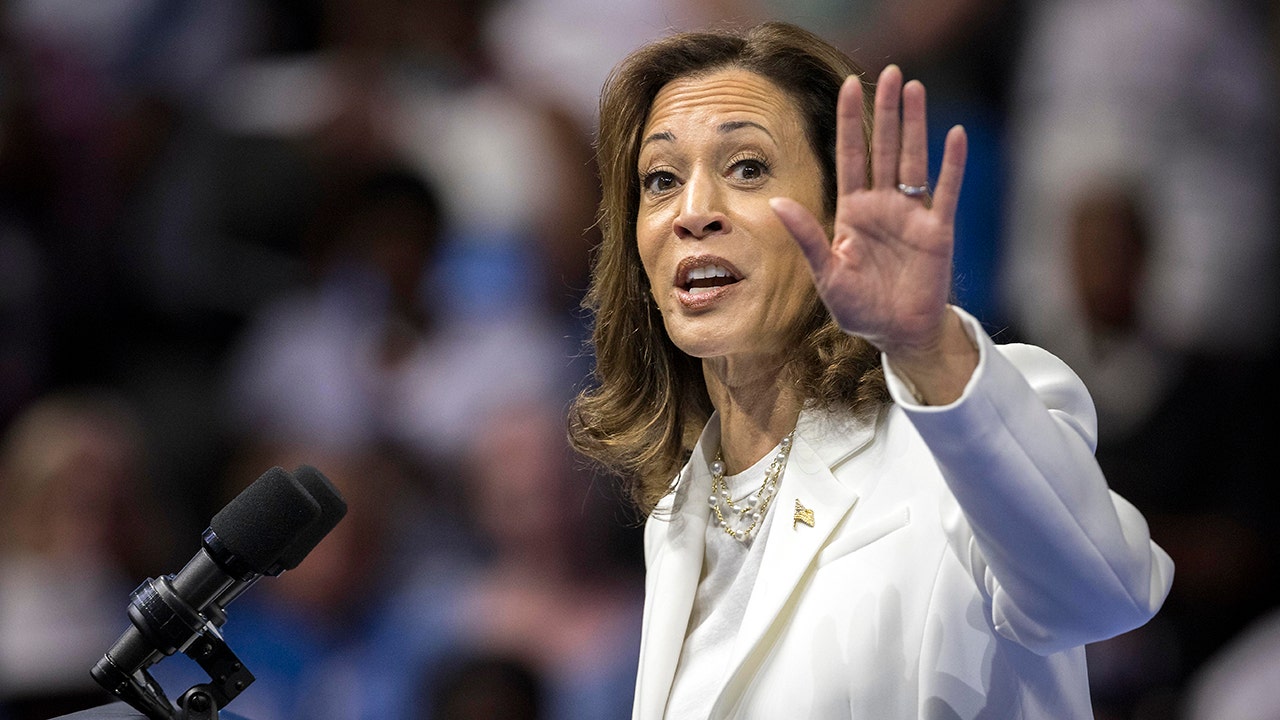







 English (US) ·
English (US) ·